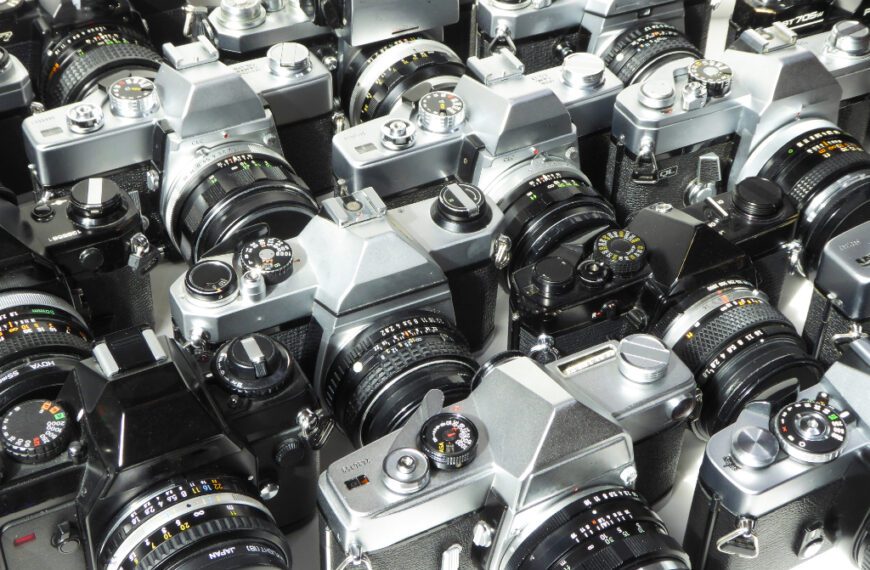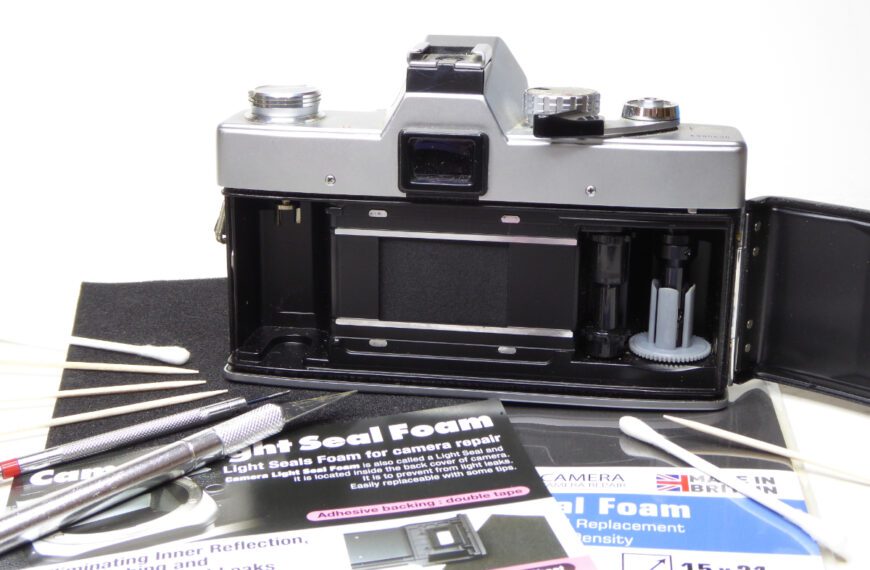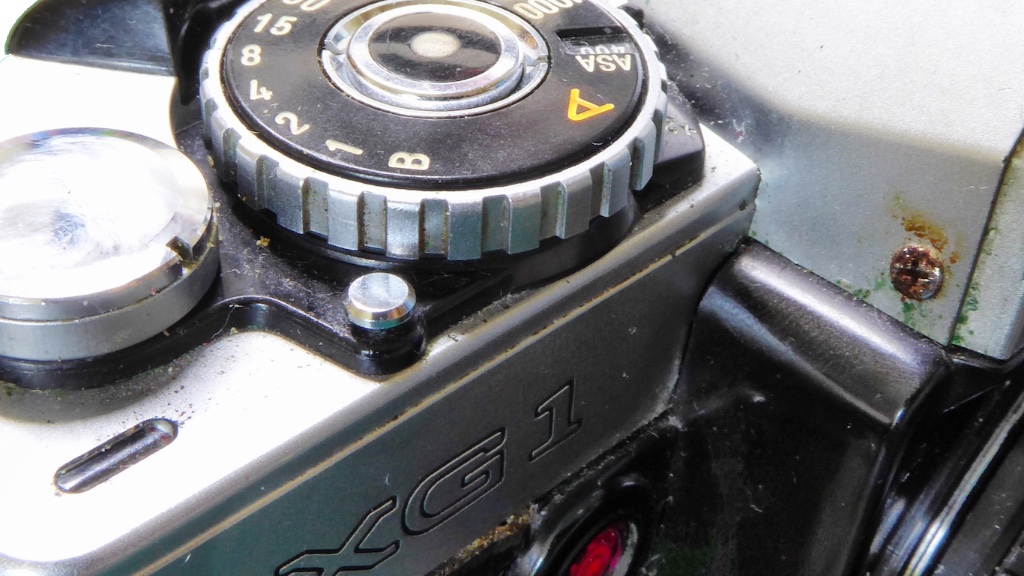
If you don’t want to be on the receiving end of a camera that looks like the one above then read on and learn how to buy a camera on eBay.
A quick look on google will find you hundreds of similar articles. However, on close review, they all describe how to best shop on eBay NOT what to look for in buying a film camera specifically. We explore those aspects of a camera that will enable you to better judge the camera on offer as well as the seller. If you read the article on how eBay ate my camera you may well be interested in this follow-up on how to spot the duds in a few easy lessons including: –
- How to research your choice of camera
- How to access the quality of cameras on offer
- How to test a camera once it arrives
Do Your Research
Before you seek to buy a camera on eBay you need to know what you’re looking for. So, do your research. Once you have settled on a particular camera then read up on it. Download the manual for it and read it from cover to cover.
Why bother? Well, how will you know if it checks out if you don’t know how it’s supposed to work? It’s like buying a car without knowing what features it comes with.
Next, study pictures of the model of camera camera online from Google images, this will allow you to spot the more obvious flaws. Missing trim items, damage which is not obvious on first glance etc. Before you commit to buy a camera on eBay and spend your money, you need to be smart on what to look for. Know your subject.
Research also on possible issues. Some cameras have known faults that can rear up. So do some looking. It’s also worth researching the particular model. The world of film cameras is prone to sudden price swings based on modern hype. After Spiderman came out the price of Yashica Electro 35s (Peters Parkers camera in the film) skyrocketed. Some of these are a bad buy, the Electro 35 can suffer problems in a big way and its often expensive to repair.
Same with cameras like the K1000 and the Canon AE-1 – these have modern internet hype pushing the price but they really aren’t the best of cameras in many respects. The K1000 was popular because it was cheap, the AE-1 because Canon spent millions on its marketing. Back in the balmy days of the 1970s and early 80s prices were different – back then the K1000 was a budget camera. Today with Internet gurus pushing it the price is above that of a Pentax KX which was the flagship camera of the K series! Go figure – but these are the reasons you should research to get the best deal.
We’ll be covering some popular cameras in part 3 of this article to help you get started.
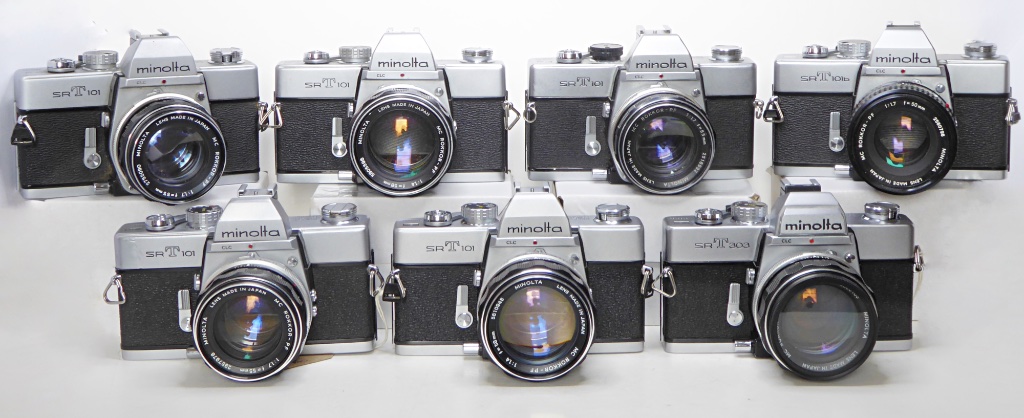
Ask the right questions before you buy a camera on eBay
Do all of the functions work?
Be inclined to doubt anyone who says they “don’t have batteries to test”. Batteries for most classic film cameras are dirt cheap, so if the seller is serious (their camera selling history will tell you if they are) they should have tested the camera out. Sadly ‘I don’t have any batteries’ is usually shorthand for “it doesn’t work at all but I want you to buy it and want to absolve myself of any guilt when it turns out not to work”.
A lot of sellers know you want to Buy a Camera on eBay and work on the theory that it’s easier to refund all or a partial refund rather than testing or more likely knowing how to test a camera. They are essentially playing a numbers game. It is inexcusable for an eBay seller who concentrates on old film cameras to say “It looks ok and winds on”.
If you were buying ANY battery-operated device you’d rightfully be put off by a seller saying he won’t buy batteries to test – cameras are no different.
Never forget that the seller’s feedback is only half the story. You have to read between the lines. If a seller states a camera is untested or doesn’t have batteries etc, but their previous sales and current items for sale comprise mostly cameras then it should be ringing alarm bells.
Decoding Seller Descriptions
| Fantasy | Reality |
|---|---|
| It was dads, grandads, great grandads… | It wasn’t there are no pity parties on eBay – classic cop out to absolve the seller from any responsibility when it doesn’t work. |
| Selling on behalf of a friend | As above but their family hates them. |
| It looks ok and winds on | It’s the same as saying my car looks ok and the light comes on when you open the door. Would you buy this car? OK and winds on is no guarantee of proper functioning and never constitutes a fully working camera ie shutter problems to name one. |
| Been carefully stored | Been in the loft for 30 years. Dried out and open to excellent fungal conditions. Lubricants dry out and internal seals perish even when carefully stored. |
| Probably a simple fix | Based on what? They are hoping you see this as a bargain. There are no few simple fixes that require no tools or expertise. |
| Shutter sounds ok | Camera sold by Clark Kent with hearing super powers able to differentiate between 1000th and 500th of a second. |
| Looks mint | Aww, look at the pretty camera, that will look lovely on my side board. Sadly good cosmetics will count for nothing when you take pictures. |
| Worked last time I used it | Last week? Last year? From when you snapped off a few shots at the Live Aid Concert? Cameras need regular use and servicing. |
| Don’t have batteries to test it | Can’t be bothered. Leaving it open means they can be shocked and surprised when you return it. |
| Untested | Really, really can’t be bothered. Leaving it open means they can be disappointed as well as shocked and surprised when you return it. |
| Don’t know anything about cameras | Really, really can’t be bothered but now they have an excuse. |
| BNIB | Original owner never touched it but all of the above apply. |
Things To Ask a Seller
Does the lens have fungus?
Fungus is never good. It should be noted that not all lenses can be cleaned of fungus and cleaning always means risk. Bear in mind some lenses are simply not possible to clean.
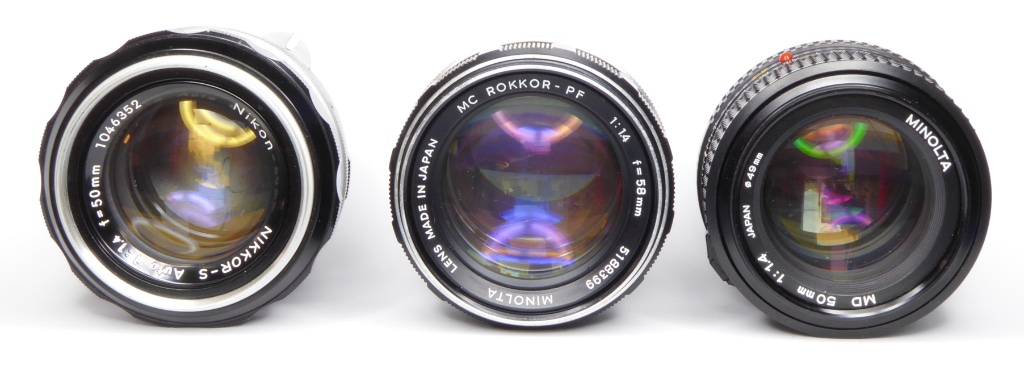
We are in a world of sellers stating they aren’t “experts” but ANYONE (yes literally ANYONE) can see if there is fungus. Just shine a torch at an angle into the lens and look through the other side. Most fungus will show and look like (guess what?) fungus.
There are other aberrations and some forms of fungus can be deceiving but generally speaking it’s an easy spot. Reject any lens with fungus unless you are expert enough to disassemble and clean it. Even experts get caught out on this sometimes and your first exposure (pardon the pun) to film should not be having to clean a lens from interior fungus.
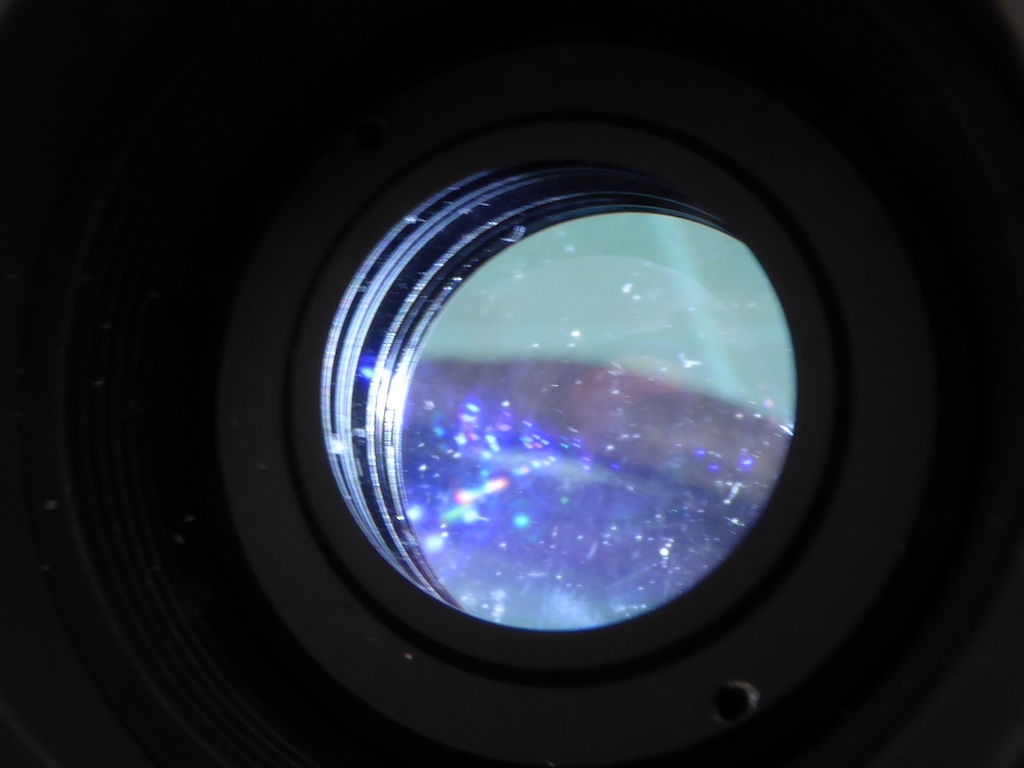
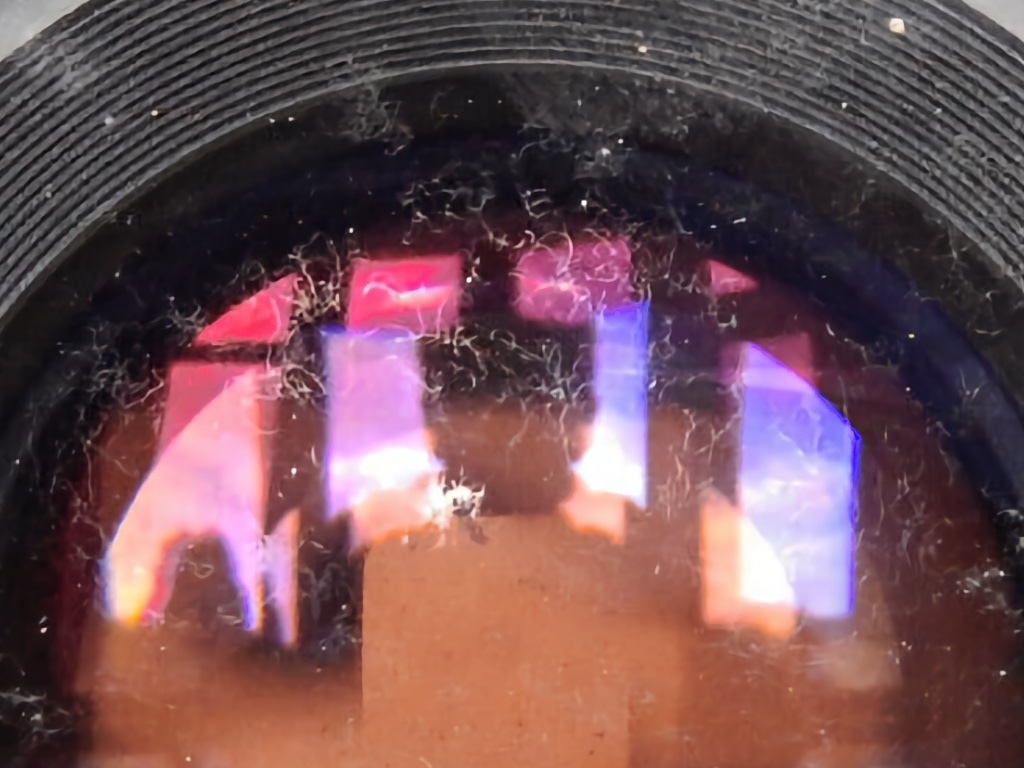
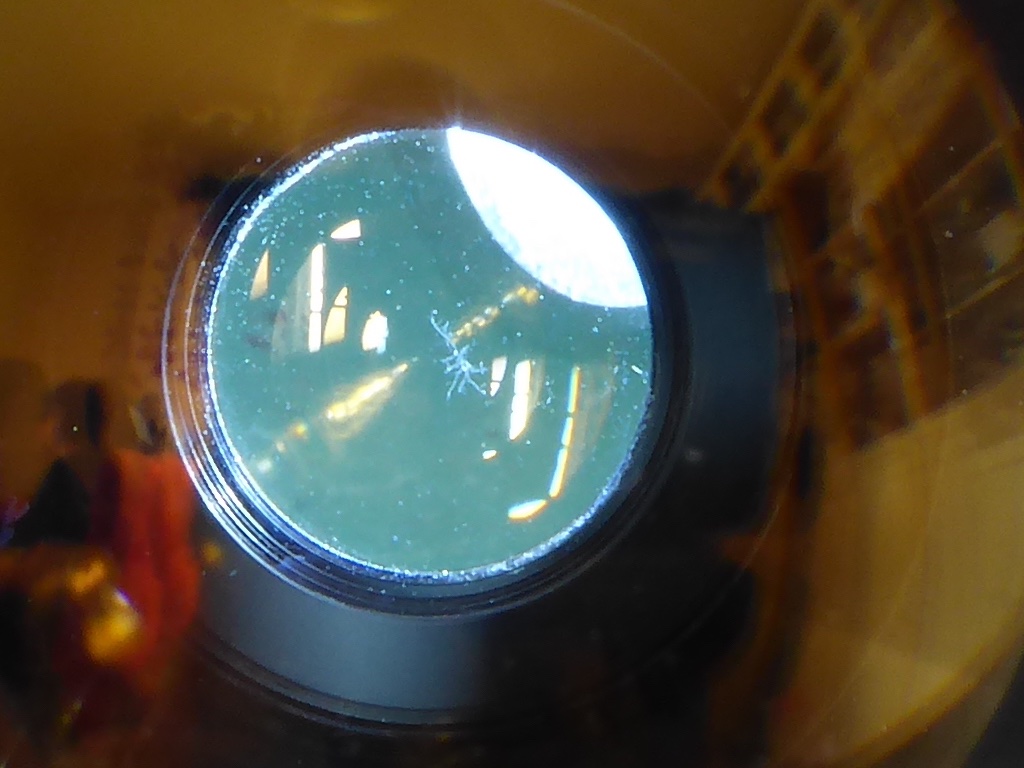
Does the lens focus correctly?
It’s a simple test – look through the viewfinder and twist the focus.
Does the lens stop down correctly?
Ask the seller to set the lens to f16 wind on and fire while looking down the lens. They should see the diaphragm close and open instantly.
Does the viewfinder look clear?
No one needs to be an expert photographer to simply look into the viewfinder and state whether it’s clear. It’s a mistake to assume these are cleanable. Never use isopropyl alcohol on a focus screen as you will melt them.
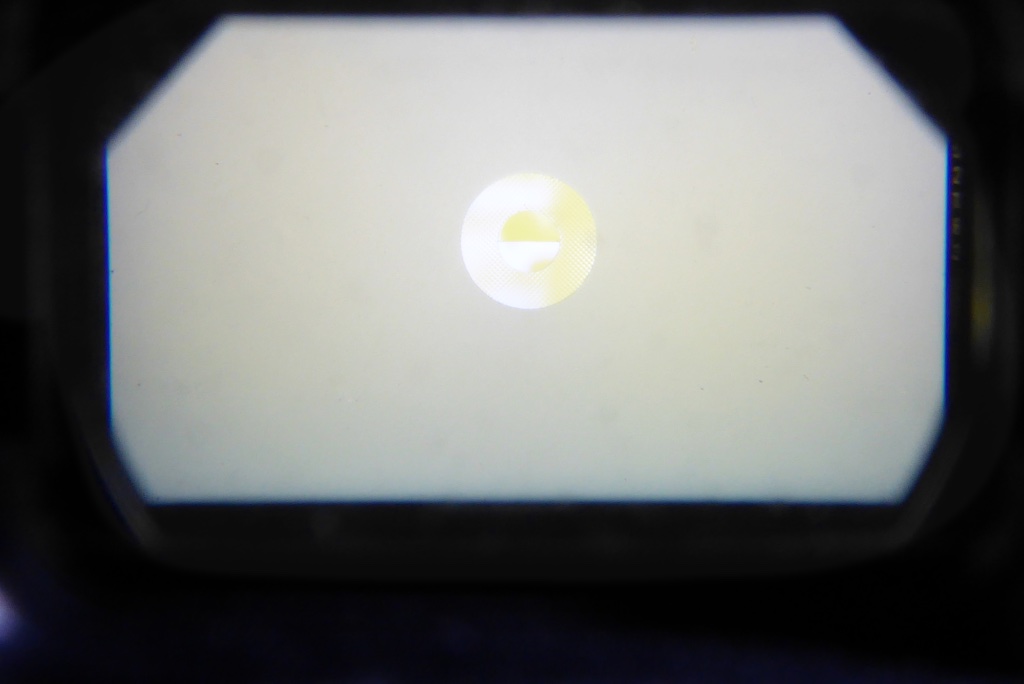
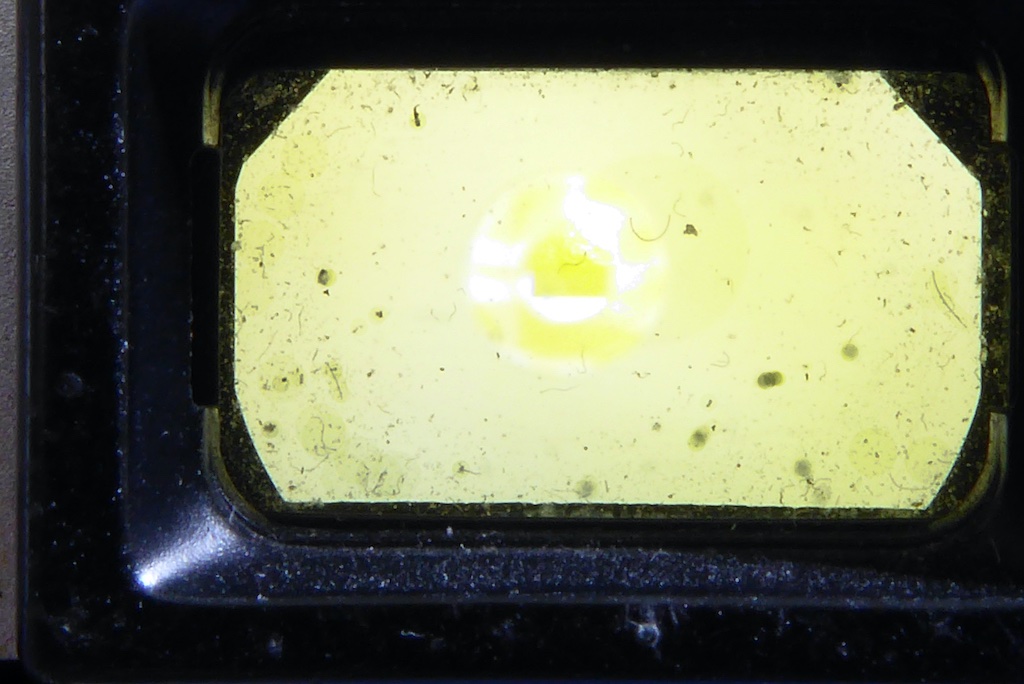
Does it wind on and fire?
Now, this is no guarantee of the camera being viable. There are a range of issues that can be present, even in a camera which appears to work. There can be issues like shutter capping which will mean you get a dark line in your pictures and the shutter may no longer be accurate with its speeds. The only way to test for sure will be to either run some film through it or have the specialised test equipment to measure it.
Does the light meter work?
A classic issue here is sellers stating it does. What they really mean is the needle shifts about in response to changes in light. That’s a good sign but it does not infer accuracy. To know whether it’s accurate you need either a known good camera, a good eye for light values or a calibrated light source. A simple test is to set the film speed to 125, set the shutter speed to 125 and point the camera at a bright summer sky. The meter should centre when the aperture on the lens is set to f16. This is known as the ‘Sunny 16 Rule’.
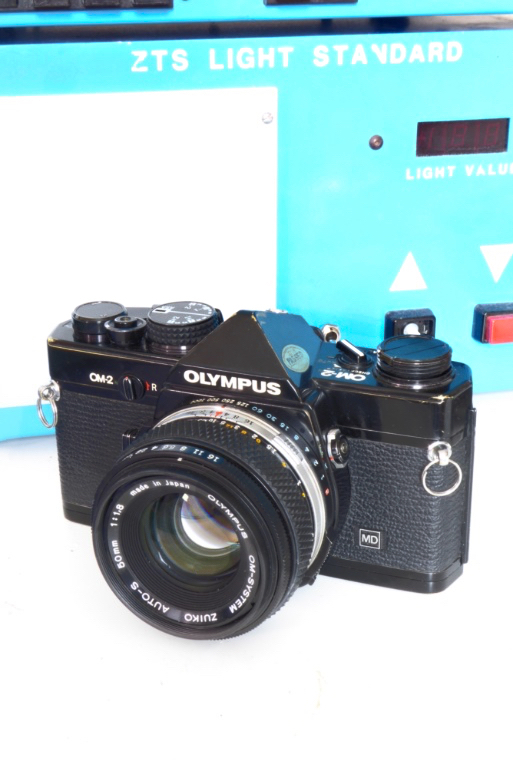
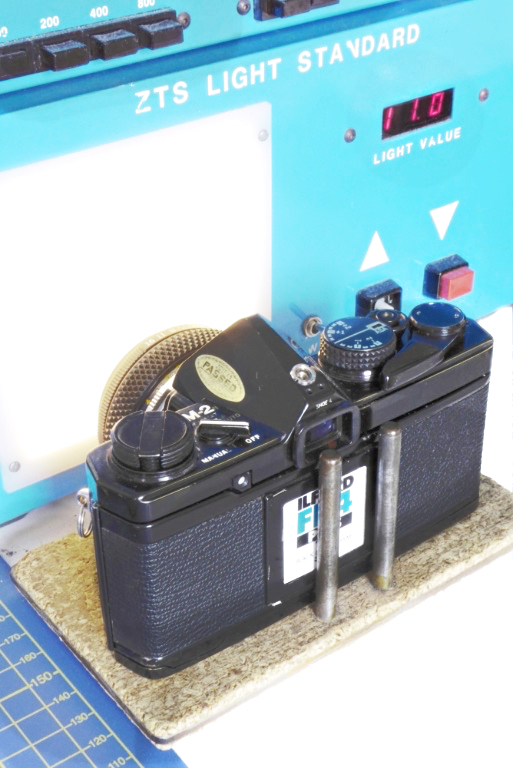
In order to know if the meter is working of course the seller must have batteries in it so anyone saying the meter runs but they haven’t got any batteries is obviously less than honest.
In truth a lot of sellers will state yes to all of the questions and assure you things are fine – they won’t be on arrival, so don’t be scared of raising a return request and get it moving back to them pronto. Unless you want to learn camera repair as opposed to taking pictures don’t get involved in repairs. Good sellers will of course always answer questions and will even help if you have problems after the purchase.
Once you have gone ahead and bought a camera…
Get some film put through it pronto. Don’t use lots of rolls, use just a single roll of the cheapest film you can find and make sure you get it shot and processed with enough time to get a refund in case the camera is not working.
Also – read the camera’s user manual and check through each function stated (preferably before you buy a camera on eBay). This will teach you how to use it fully and give you a chance to check all functions are working as they should.
Not reading the manual is a cause for a lot of user frustration and panic.
Check the lens focus is smooth, it should feel fluid and should not grate or grind. Set the lens at f16 and watch the lens from the front as you test fire the camera. The aperture blades should react instantly and open again instantly. Oil on a diaphragm mechanism is no job for a beginner.
Check the meter is reactive using the Sunny 16 Rule above and don’t wait for Grandma’s Birthday or aim to get Time-Life picture of the year – just get the film shot. Shoot a range of subjects, close up, far away, a flower, the countryside, cars, old boots – just anything. You want to test that all is working it’s not about winning a photographic prize.
Getting the camera fixed up
The most common causes of problems with old cameras are their light seals. Almost all old cameras will require this as a minimum. This is a job you can do yourself and there is a light seal guide on this site.
There are online tutorials for more complex works but beginners are best advised to not get into taking things to bits. You are far more likely to do harm than fix anything and you will need specialised tools and experience. Be wary of quick fix You Tube tutorials – these are quite often a fast way to wreck stuff.
Most classic and old cameras require maintenance and if you love film you should be willing to spend on keeping it going. No one is making new film cameras anytime soon so it’s up to YOU if you want to keep on using film – if you do that means investing. Investing in learning, investing in buying film and crucially investing in maintaining your camera.
Cut & Paste Questions to ask when you buy a camera on eBay
Dear eBay Seller,
I’m interested in your camera/lens. I would appreciate answers to the following: –
- Have you done a torch test on the lens?
- Does the focus barrel move smoothly with no feeling of grittiness?
- Does the lens stop down correctly and are the diaphragm blades free of oil?
- Does the viewfinder look clear?
- Does the camera wind on and fire?
- As batteries cost less than a pound and are readily available, have you tested that the light meter works?
- Has the camera recently had a service?
- Does the self-timer work?
- Does the frame counter advance when winding on?
- Does the camera fire at all speeds?
- Is the battery compartment free from corrosion?
Next up – common problems with some of the more common cameras and what to do….
Further Reading
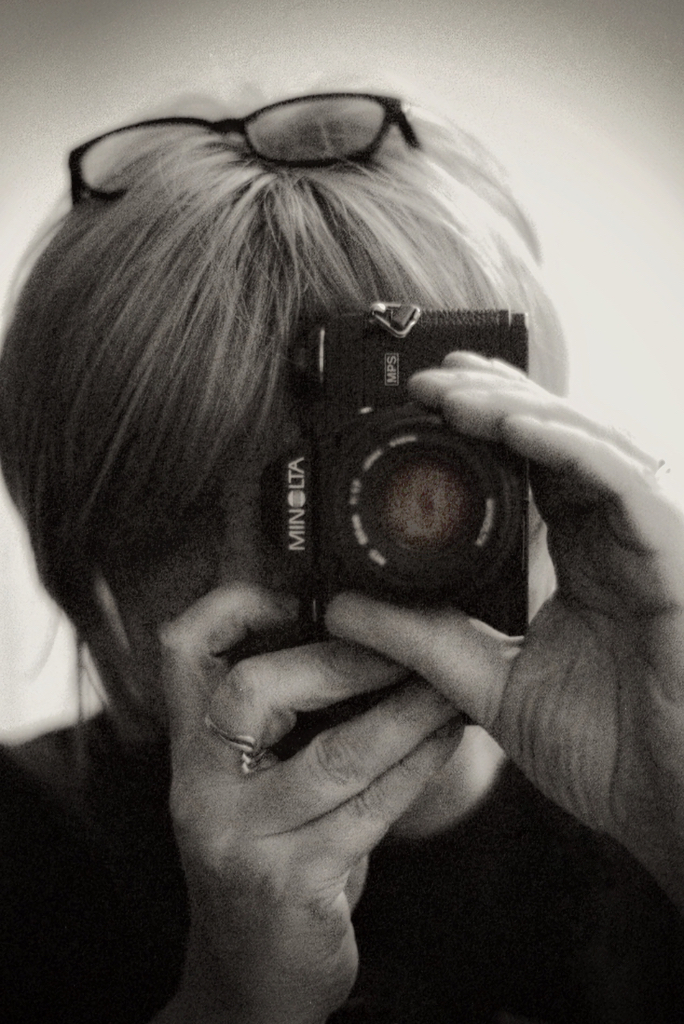
Mel is one of the driving forces behind High 5 Cameras and writes all our articles.
Starting serious photography back in 1972. Over the years she got to shoot film with most of the major brands in 35mm and large format as both a studio photographer and content provider for websites in the early life of the web. These days she is rediscovering photography and has become the GOTO person for knowledge on camera repair advice.


